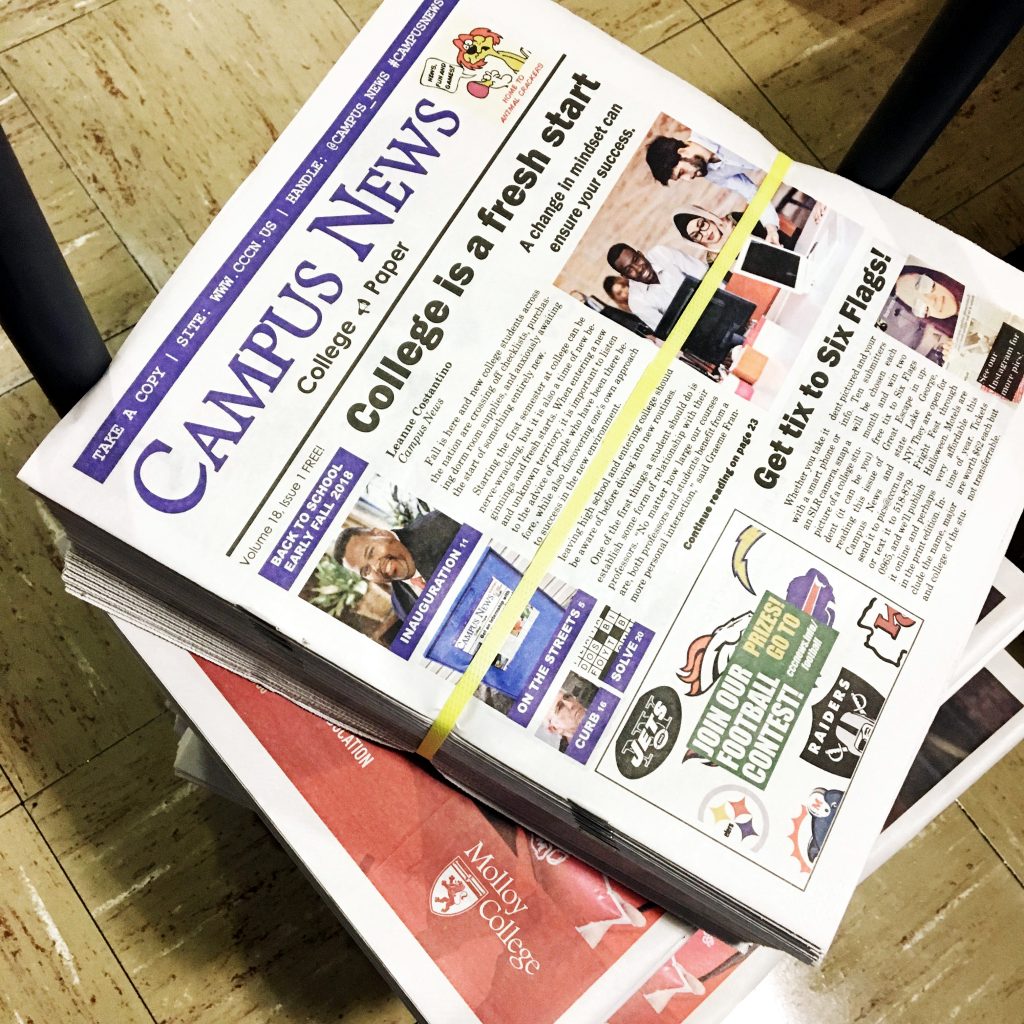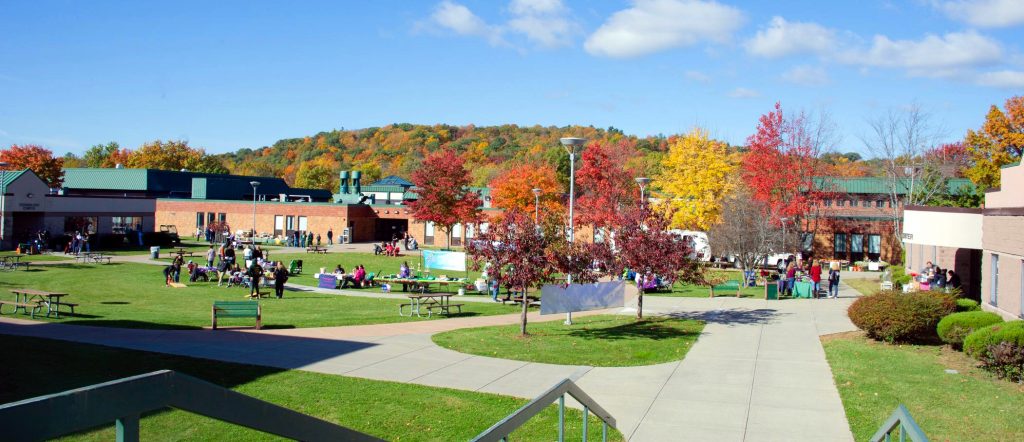By Leanne Costantino
Campus News
Fall is here and new college students across the nation are crossing off checklists, purchasing dorm room supplies, and anxiously awaiting the start of something entirely new.
Starting the first semester at college can be nerve-wracking, but it is also a time of new beginnings and fresh starts. When entering a new and unknown territory, it is important to listen to the advice of people who have been there before, while also discovering one’s own approach to success in the new environment.
There are a few crucial points that students leaving high school and entering college should be aware of before diving into new routines.

One of the first things a student should do is establish some form of relationship with their professors. “No matter how large our courses are, both professors and students benefit from a more personal interaction,” said Graeme Francis, adjunct professor of percussion at St. Rose, Hartwick, and RPI.
“We become better teachers because we can relate to our students more easily. Students are more comfortable asking questions and seeking advice or help when needed, and that in particular is something students should feel comfortable doing.”
This is especially important when pursuing performing or fine arts degrees, because the professors need to get to know a student’s style to be able to guide them and help them improve, although the same sentiment rings true in all disciplines.
“Professors all have office hours, and it’s a really good idea to stop by and introduce yourself so we can at least put names to faces, especially in large seminar style classes,” continues Francis. “This is especially important if you’ve always been the student that is on the shy side or preferred to blend into the back of the classroom. By putting yourself forward, you’re setting yourself up to take a more active role in your own education, and that’s a habit we all need to develop.”
When professors see that a student is making the effort to establish a connection and get advice about the class, they are more likely to be willing to help when it is needed the most. A professor shows up every time class is held to teach something that they have devoted their entire careers to, so it is a good gesture for students to show an appreciation towards them for doing so.
Another way for students to show enthusiasm for their education and establish a further connection with the professor is regularly attending class and sitting near the front. “You’re guaranteed to take classes for your major, and your professor may just have some awesome connections out there,” said college senior Jenn Banko, who attends the University of California, Santa Cruz. “Professors look highly upon the student who continuously shows up.” Showing up to class is just like showing up to work. A professor will speak highly of students when they go on to seek jobs or look to enter into a master’s program if they always attended class and tried their hardest to succeed.
In addition to establishing connections with the professor, it is also important to get to know fellow classmates for the same reasons. “Be brave, be open minded, and support each other,” said Francis. “Sounds obvious, but first-year college students share many traits: you’re nervous, unsure of your new environment, all of a sudden much busier than you were in high school, and faced with a pile of new challenges and people. Use those common characteristics to relate to your peers, knowing that they’ll need support just as you will.”
The third source of guidance and help comes from the university itself. The library and counseling centers can offer anything from helping students find a book to helping them manage stress related to their academics. “Don’t be afraid to ask for help when you need it,” continued Francis.
“Campuses are better equipped than ever to help students with the transition to college, and everyone should feel empowered to use the resources offered.”
After seeking out professors and classmates to be of support in the transition to college, while keeping in mind the resources put forth by the university, the last step in the shift from high school to college is finding balance. Unlike high school, no one guides a student’s day at college. It is entirely up to the student to structure their own schedule and be diligent about getting their work done.
“Strive for a balance between your academic and social life,” said Francis. “Both are essential for a successful transition into a work environment, and the sooner you can find that balance at school, the easier the transition will be once you’re out in the ‘real world.’”
College, like any other endeavor in life, is about learning and growing. Remember to seek guidance and help when needed, find the balance between personal life and school projects, and, most importantly, enjoy the process!








Facebook Comments